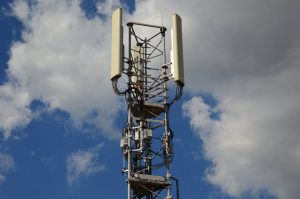The Future of Satellites: A New Era of Space Exploration and Connectivity

The Future of Satellites: A New Era of Space Exploration and Connectivity
The future of satellites is looking bright, with advancements in technology and a growing demand for space exploration and connectivity. The future of satellites is a topic of great interest and importance, as it has the potential to revolutionize the way we communicate, navigate, and understand our planet. In this article, we will explore the current state of satellite technology and what the future holds.
Future of satellites is an exciting and rapidly evolving field, with new technologies and innovations emerging all the time. One of the most significant advancements in recent years is the development of small satellites, also known as cube satellites or nanosatellites. These tiny satellites are smaller, cheaper, and more efficient than traditional satellites, making them an attractive option for a wide range of applications, from Earth observation to communication.
Current State of Satellite Technology
Satellite technology has come a long way since the launch of the first artificial satellite, Sputnik, in 1957. Today, there are thousands of satellites in orbit around the Earth, providing a wide range of services, including television broadcasting, navigation, weather forecasting, and communication. The current state of satellite technology is characterized by a growing demand for high-throughput satellites, which are capable of providing fast and reliable internet connectivity to remote and underserved areas.
The use of satellites for communication and navigation is becoming increasingly important, as the world becomes more interconnected and dependent on technology. Satellites play a critical role in providing internet access to remote and underserved areas, where traditional communication infrastructure is limited or non-existent. They also provide critical navigation services, such as GPS, which is used in a wide range of applications, from aviation to logistics.
Future Developments in Satellite Technology
The future of satellites is looking bright, with a number of exciting developments on the horizon. One of the most significant advancements is the development of satellite constellations, which are networks of satellites that work together to provide global coverage and connectivity. These constellations have the potential to revolutionize the way we communicate and navigate, providing fast and reliable internet access to anyone, anywhere in the world.
Another exciting development is the use of satellites for Earth observation and remote sensing. Satellites are being used to monitor the environment, track climate change, and predict natural disasters. They are also being used in a wide range of scientific applications, from astronomy to meteorology. The use of satellites for Earth observation and remote sensing has the potential to provide valuable insights and data, which can be used to inform decision-making and policy development.
Challenges and Opportunities
Despite the many opportunities and advancements in satellite technology, there are also a number of challenges that need to be addressed. One of the most significant challenges is the issue of space debris, which is a growing concern as the number of satellites in orbit increases. Space debris has the potential to cause significant damage to operational satellites and spacecraft, and it also poses a risk to human safety and the environment.
Another challenge is the issue of regulatory frameworks, which are currently unclear and inconsistent. There is a need for clearer and more consistent regulations, which can provide a framework for the development and operation of satellites. This will help to ensure that satellites are used in a responsible and sustainable way, and that they provide benefits to society as a whole.
Conclusion
In conclusion, the future of satellites is a topic of great interest and importance, with many exciting developments on the horizon. The use of satellites for communication, navigation, and Earth observation has the potential to provide valuable insights and data, which can be used to inform decision-making and policy development. However, there are also a number of challenges that need to be addressed, including the issue of space debris and regulatory frameworks.
As we look to the future, it is clear that satellites will play an increasingly important role in our daily lives. They will provide critical services, such as internet access and navigation, and they will also provide valuable insights and data, which can be used to inform decision-making and policy development. The future of satellites is bright, and it is an exciting time to be involved in this rapidly evolving field.





